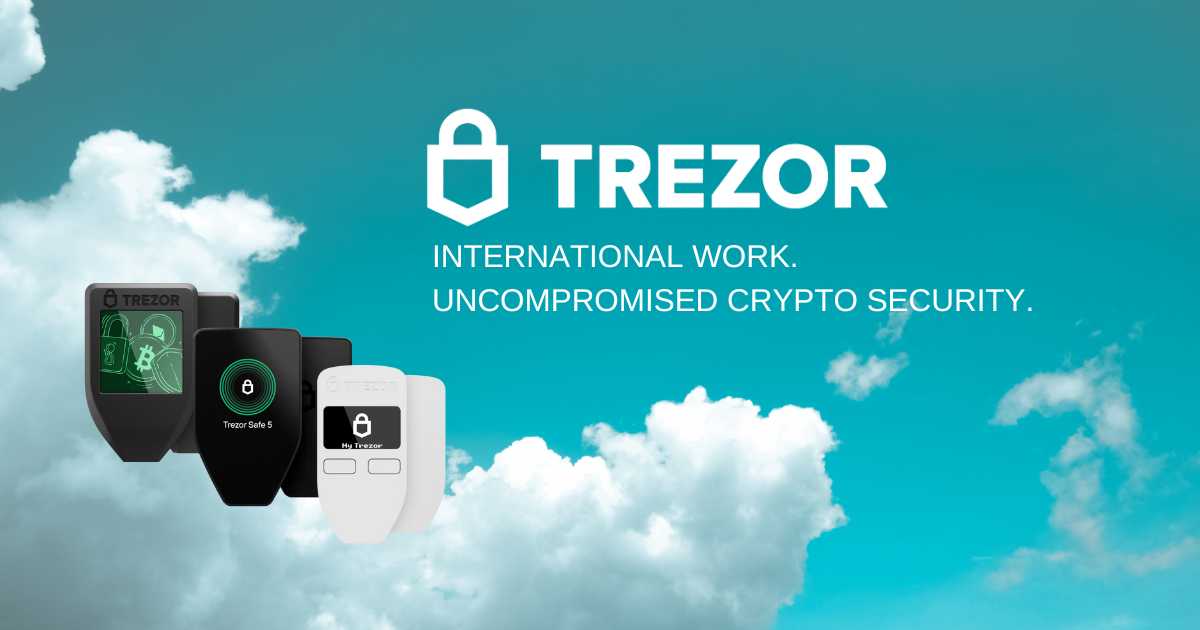As someone who lives in Italy, works internationally, and consults with clients across multiple continents, I’ve learned one thing very clearly:
Digital independence means nothing without digital security.
In a world where remote work and international payments are becoming the norm, especially in crypto, you need to be proactive about how you store your assets. This article isn’t theory. It’s how I personally manage crypto in a cross-border professional life – and why I trust a hardware wallet like Trezor to protect it.
Why Crypto Is a Tool for Global Professionals
Crypto has given consultants, freelancers, and digital entrepreneurs a way to bypass many of the pain points of international banking:
- No delays or fees from cross-border wires
- No dependency on local banks or currency restrictions
- A growing number of clients willing to pay in stablecoins or Bitcoin
But that independence comes with risk. If your funds are stored on an exchange or in a hot wallet connected to the internet, you’re just one hack, phishing email, or lost password away from losing access.
That’s not independence - that’s gambling.
My Real-World Setup as a Global Consultant
I run multiple businesses and work with people in at least four time zones daily. Some clients pay in crypto. Some projects earn income that I reinvest or hold long-term.
Here’s how I keep everything secure and organised:
- Client payments go to wallets I control (never exchanges)
- Long-term holdings are secured using a Trezor Model T
- Seed phrase backups are stored physically using Keep Metal to avoid water or fire damage
The entire setup is built on one idea: total control. I don’t rely on third parties for access. I don’t trust centralised platforms. And I sleep well because of it.

Lessons Learned from Working Across Borders
When you work globally, you realise very quickly that the systems you’re used to aren’t guaranteed:
- I’ve had bank cards blocked while travelling.
- I’ve seen crypto exchanges go down or freeze withdrawals.
- I’ve worked in countries with capital controls or high inflation.
In those moments, a cold storage wallet like Trezor isn’t just helpful - it’s essential. Your private keys are yours. No one can censor, block, or seize your funds.
And when internet access is unstable or government policies shift overnight, a hardware wallet lets you stay one step ahead.
My Top Tools for Financial Independence Abroad
If you’re a consultant, freelancer, or remote worker living internationally, I recommend building a basic security setup that includes:
- A Trezor hardware wallet (Model T or Safe 3)
- A metal seed backup like Keep Metal or Cryptotag Zeus
- A password manager, such as 1password, for secure access to all accounts
- A 2FA app (not SMS-based)
These tools give you autonomy, and they make sure you stay in control no matter where you are or what happens around you.
Why I Trust Trezor
There are other wallets on the market. But I chose Trezor because:
- They were the first hardware wallet creators
- Their software is open source and transparent
- Their devices are easy to use, even for non-technical people
The Trezor Suite makes managing assets simple, and it integrates with major coins and tokens. If you’re just starting, the Model One is affordable and secure. If you need advanced features, the Model T or Safe 5 is the way to go.
Final Thoughts
As a cross-border consultant, I’ve made crypto part of my income strategy. But I don’t take shortcuts with how I store it.
If you’re earning in crypto, holding long-term, or just exploring financial independence beyond borders, start with security. Start with Trezor.
Your money. Your keys. Your freedom.
Discover more articles
Explore my collection of insightful blog posts.
The Working With Us podcast
Check out these 3 recommended episodes!
Subscribe to my newsletter
Stay up to date with the latest HR insights and strategies.









